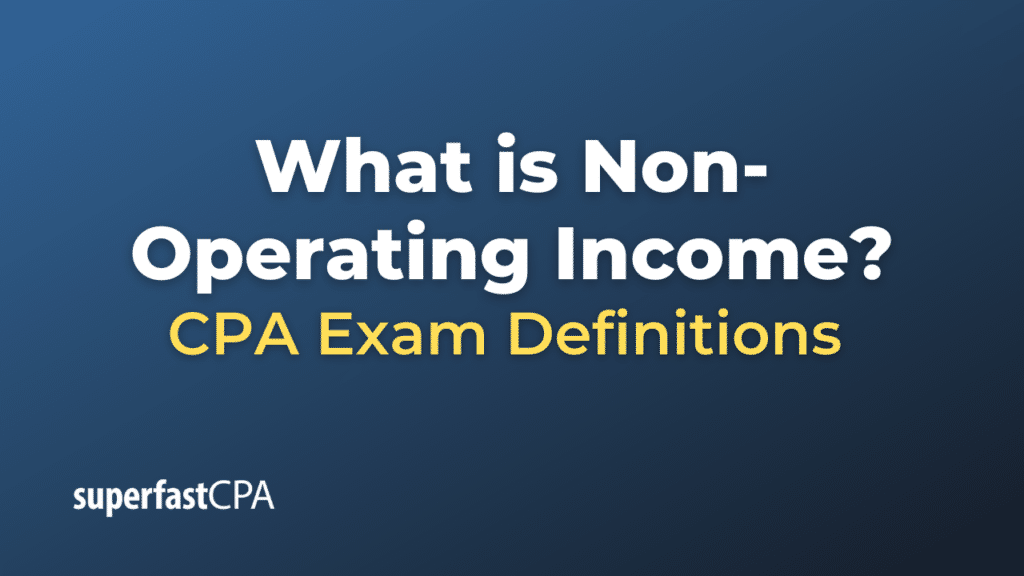Non-Operating Income
Non-operating income refers to gains or income that a company earns from activities that are not related to its primary or core business operations. It can include various types of income that are incidental or peripheral to the main business activities.
Just as with non-operating expenses, non-operating income is not considered when calculating operating income or EBITDA (earnings before interest, taxes, depreciation, and amortization), but it is factored into the net income.
Non-operating income can come from several sources, including:
- Interest Income: This refers to income earned from cash held in savings accounts, certificates of deposit, or other interest-bearing accounts or instruments. It can also include interest earned from loans provided by the company to others.
- Dividend Income: If a company holds investments in the stocks of other companies, it might earn income in the form of dividends distributed by these companies.
- Gain on Sale of Assets: If a company sells an asset for more than its recorded (book) value, the difference is recorded as a gain, which is considered non-operating income. The asset could be property, plant and equipment, or other long-term assets.
- Income from Foreign Exchange: If a company has operations in foreign countries, changes in exchange rates can lead to gains or losses when foreign currency is converted back into the company’s home currency.
- Rental Income: If a company owns real estate that it leases to others, the income from these leases would be considered non-operating income unless the company’s primary business is real estate leasing.
It’s important to note that while non-operating income can boost a company’s overall profitability, it can also make the company’s financial results more unpredictable, as these income sources can be volatile or non-recurring. Consequently, when evaluating a company’s financial performance, analysts often focus on operating income, which gives a clearer picture of the company’s earnings from its primary business activities.
Example of Non-Operating Income
Let’s use a fictional manufacturing company, “ManuCorp,” as an example to illustrate non-operating income.
ManuCorp’s primary business activity is manufacturing industrial equipment. However, in a specific fiscal year, ManuCorp has several types of non-operating income:
- Interest Income: ManuCorp has a significant amount of cash saved in a high-yield savings account. Over the year, this account generates $100,000 in interest income. This interest income is considered non-operating income because earning interest is not the main business activity of ManuCorp.
- Dividend Income: ManuCorp owns shares in a tech company as a part of its investment portfolio. This year, the tech company distributed dividends, and ManuCorp received $50,000 as its share. This dividend income is another example of non-operating income.
- Gain on Sale of Assets: ManuCorp sold a warehouse that was no longer needed. The warehouse was sold for $1 million, but its book value (the value at which it was recorded on ManuCorp’s balance sheet) was $800,000. Therefore, ManuCorp recognizes a gain of $200,000 ($1 million – $800,000) from this sale, which is non-operating income.
- Rental Income: ManuCorp also owns a small office building that it rents out to other businesses. This year, it earned $150,000 in rental income. Unless ManuCorp’s main business was real estate, this rental income would be considered non-operating income.
All of these – the interest income, dividend income, gain on the sale of the warehouse, and rental income – are non-operating income for ManuCorp. While they contribute to the company’s overall net income, they are not a result of the company’s primary business activities (manufacturing industrial equipment). Analysts and investors would consider these sources of income separately when evaluating ManuCorp’s operating performance and financial health.













